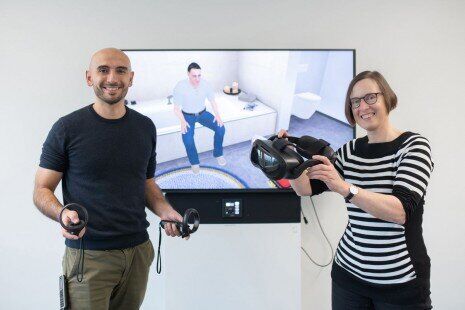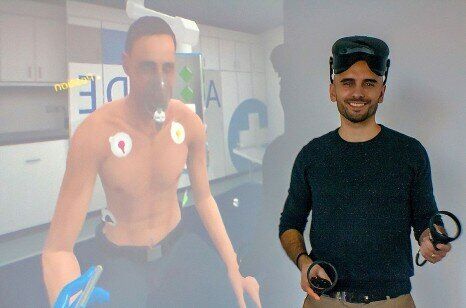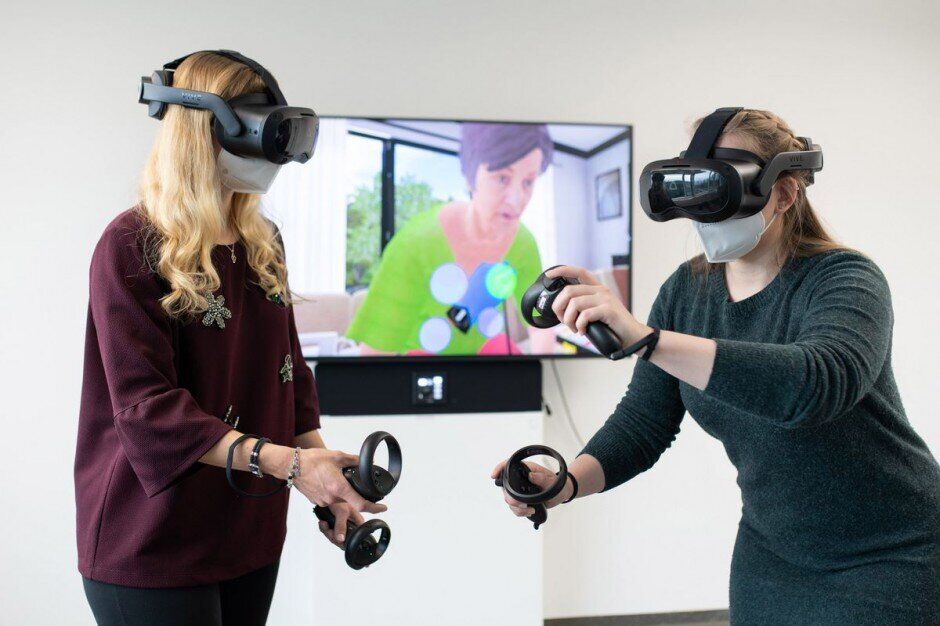(Image source: Elvira Eberhardt / University of Ulm)
Medical students practise a treatment situation in virtual reality
Medical students acquire medical skills as avatars
Training for the medical profession in the virtual world – this vision of the future is already a reality for medical students at Ulm University. The “ToTrainU” training hospital, which will be inaugurated in 2021, is currently being digitally recreated. Future medical doctors can already practise complex procedures in the virtual ambulance training. In addition to a simulated treatment room, digital versions of the intensive care unit and the shock room will soon be available. Here, conversation situations or important treatment procedures can be trained alone or in a team. Exercises of different levels of difficulty are available – among others from the areas of trauma surgery and intensive care medicine.
Astrid Horneffer, as medical director of the TTU responsible for coordinating the simulation offers, sees the VR educational formats as an important piece of the puzzle:
“Our students practise skills such as blood collection and surgical suturing in so-called skills labs using simple models. In virtual reality, they learn treatment procedures and team communication, which are ultimately implemented in the real training hospital – sometimes even with the help of actors.”
The Ulm-based Competence Centre eEducation in Medicine Baden-Württemberg is cooperating with TriCAT GmbH to transfer the ambulance practical and the TTU into virtual reality. TriCAT has developed the immersive multi-user VR software i:medtasim®, in which the rooms are recreated to scale. Initially, medical students in the clinical section will use the digital offer exclusively with VR glasses in the real TTU. In future, however, they will also be able to treat their virtual patients from their desks or sofas at home.
“The VR offerings add another dimension to medical training: in virtual space, trainee medical doctors can build up their practical skills step by step and try out ideal-typical procedures without time pressure. Through this training, they are more likely to keep a calm head in real stressful situations”
Project leader Robert Speidel from the Competence Centre eEducation at the Faculty of Medicine


Photo left: Project manager Robert Speidel, a psychologist specialising in learning sciences, and the medical director of the TTU,Astrid Horneffer, TTU medical director Astrid Horneffer (from left) coordinate the real and virtual simulations.
The University of Ulm now regularly uses the highly immersive multi-user VR environment i:medtasim® in training students. The next virtualisations of TriCAT for the learning clinic will be the Intensive Care Unit and the Central Emergency Department. This will allow students to train intensively in “their” rooms in VR as well.
The virtual training hospital is expected to open its digital doors from the winter semester 2022/23.


